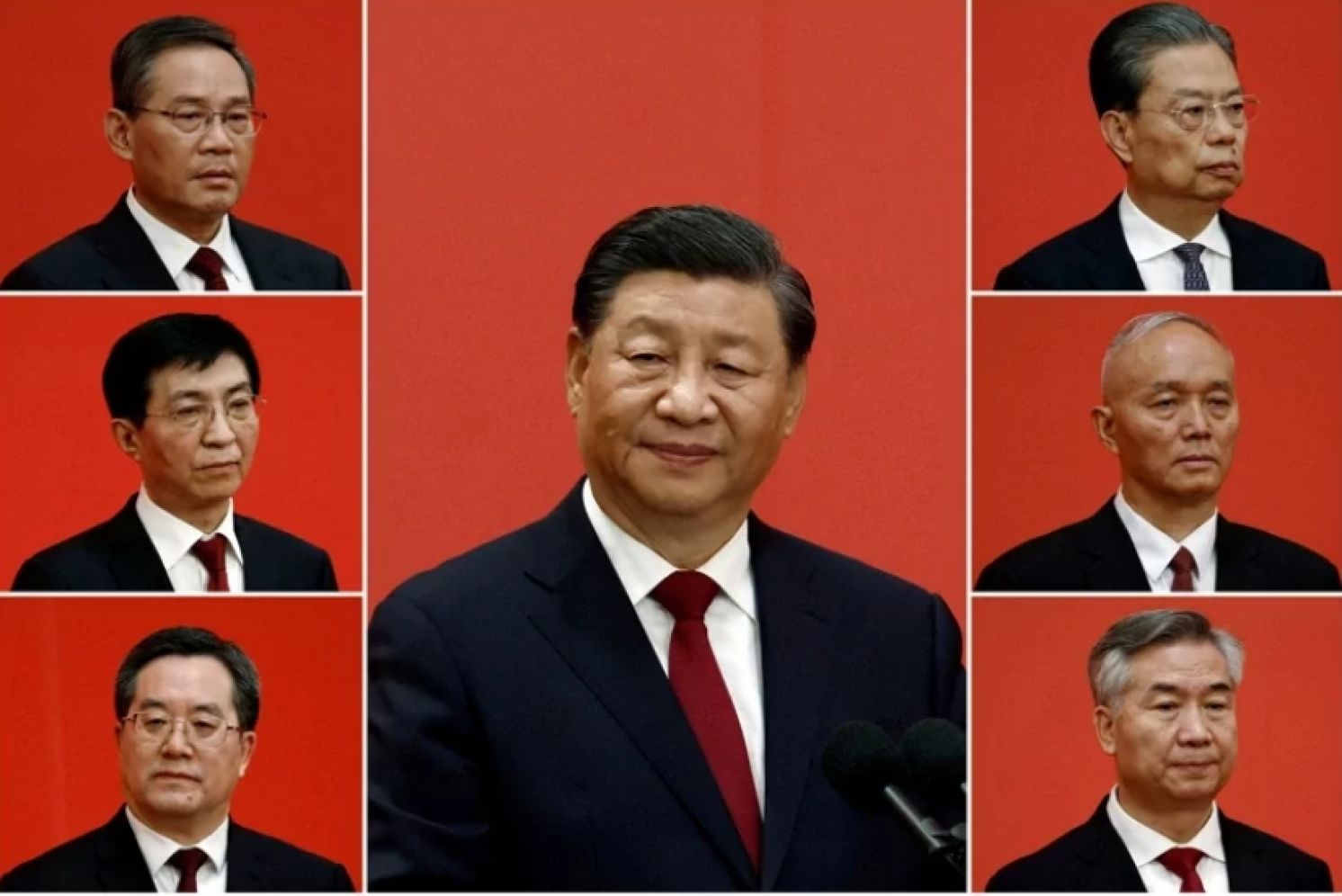
Does Cai's Ascension and New Leadership Hint Resolution of Taiwan Issue?
United Daily News Editorial, October 23, 2022
On October 23, the first plenary session of the 20th Central Committee of the Chinese Communist Party elected new members of the Standing Committee of the Politburo and Xi Jinping entered into his third term. Among the seven Standing Committee members, Li Qiang, secretary of the Shanghai Municipal Party Committee, will be the next premier—as Shanghai is the birthplace of the Communist Party and the core role of the Central Committee of the Party is traditionally held by the Secretary of Shanghai. Wang Huning stays on to take charge of the United Front of the Chinese People's Political Consultative Conference (CPPCC) which is not far from his long-term experience as the theoretical guru of the Communist Party. What is surprising is that Cai Qi, Secretary of the Beijing Municipal Party Committee, will serve as the first secretary of the Central Secretariat of the Central Committee.
Li has served as the secretary of three important jurisdictions: Zhejiang, Jiangsu and Shanghai, and indeed, has always been a rare local official with such impressive qualifications. As such, even though he has no training in the central government, he has no trouble in the public confidence department. Among all of Xi’s people, his qualifications are the most complete and is likely the main reason he was elected Prime Minister of the State Council. Even if Shanghai's lockdown persists through this year, the position of premier is still his for the taking.
For Zhao Leji's appointment as the chairman of the National People's Congress, this position is the reward for his fight against corruption and suppressing party opponents for Xi in the past five years.
It is Wang's appointment as the CPPCC that deserves attention. After all, the chairman of the CPPCC is the second-in-command of the leading group on Taiwan. Wang’s background is theoretical study rather than practical politics. For him to now work on the frontlines, he may lack the experience and fortitude that Jia Qinglin, Yu Zhengsheng, and Wang Yang might have brought to the post given their experience.
This may mean that in the future affairs on Taiwan, the United Front system under the leadership of Wang will be more tit-for-tat struggle and sharp, thus losing calmness and ease in the United Front campaign against Taiwan. This deserves special observation and attention from Taiwan. In particular, when Taiwan's mainstream public opinion is based on the anti-China to protect Taiwan and adopts a highly hostile trend towards Beijing, Wang's possible tough style also indicates the bumps of cross-strait relations.
However, at the same time, Cai was specifically promoted to be a member of the Standing Committee. Although Cai's ancestral home is not Fujian, he was born in Fujian and can still be regarded as a native of Fujian. This background draws people’s imagination because Fujian is adjacent to Taiwan. Before him, there was only one person from Fujian who entered the Standing Committee in the Communist Party’s 70 years of history—Zhang Gaoli— who was appointed as the executive vice premier of the State Council.
This shows the unusual significance of Cai's appointment: it can be said that Cai's membership may be a significant indicator of China's intention to make the resolution of Taiwan a priority in the political agenda. What is more noteworthy is that before being transferred to Beijing, Cai was transferred to the newly established Office of the Central National Security Council as deputy director in 2014 and promoted to executive deputy director the following year. This "National Security Commission", chaired by Xi, not only coordinates and integrates all security, military and intelligence issues of the Communist Party, it also deals with the most difficult "Taiwan independence" problem.
Xi himself is an old cadre who has worked in Fujian for 17 years, so there are now two Fujian experts in the seven Standing Committees members. These experienced hands should contribute to keener analysis and more efficient and unified decision-making on the Taiwan issue.
Judging from this lineup, in the new seven Standing Committee members, Xi, together with Cai and Wang may be the iron triangle to solve the Taiwan problem. It resonates with the announcement of Xi 's 20th National Congress report "Never promise to give up the use of force and reserve the option to use all measures", with Xi and Cai making decisions to act and Wang to support with theory and narrative. As for whether it will follow the American prediction that Xi will solve the problem before the end of this term — this, of course, is still uncertain. However, the developments certainly do not bode well for Taiwan!